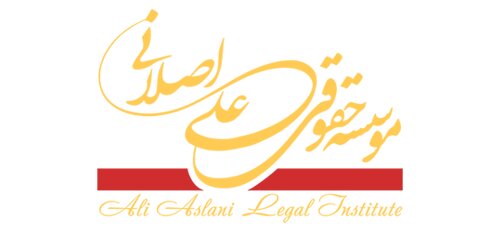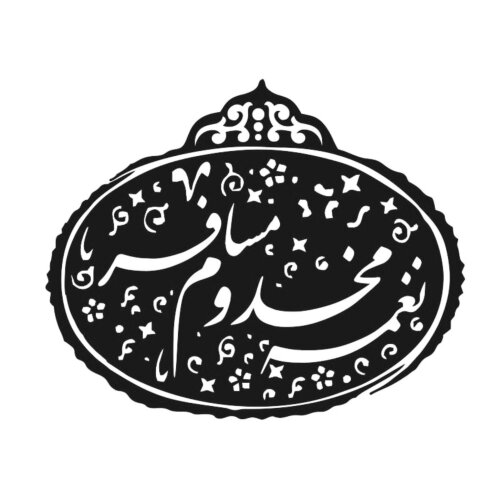Best Appeal Lawyers in Tehran
Share your needs with us, get contacted by law firms.
Free. Takes 2 min.
List of the best lawyers in Tehran, Iran
About Appeal Law in Tehran, Iran
In Tehran, Iran, the appeal process is a crucial aspect of the judicial system, which allows individuals to challenge the decisions made in their cases by a lower court. The process serves as a mechanism for ensuring fairness and accuracy in legal judgments by enabling a higher court to review and possibly overturn or modify previous rulings. The appeal system in Iran follows structured procedures and is governed by specific laws aimed at maintaining the integrity and reliability of the justice system.
Why You May Need a Lawyer
There are several scenarios where hiring a lawyer specializing in appeal law in Tehran might be beneficial. These include situations where you believe the court made errors in the evaluation of evidence, the application of law, or through procedural rulings. Additionally, if there were substantial new evidence that may influence the outcome, or if you seek to contest an unfair sentence or a wrongful conviction, engaging a lawyer could significantly impact the success of your appeal. A qualified lawyer can provide professional guidance, streamline the appeal process, and improve the chances of achieving a favorable outcome.
Local Laws Overview
The Iranian legal framework governing appeals is intricate and requires a thorough understanding of both national and religious laws. Some key aspects include strict deadlines for filing appeals and the requirement to present strong grounds for appeal that demonstrate error or injustice in the initial trial. Additionally, appeals in Tehran are generally heard by appellate courts, and the process adheres to both civil and Islamic legal principles. Understanding the specific procedures and legal nuances is pivotal, which is why legal representation is often essential.
Frequently Asked Questions
What is the time limit for filing an appeal in Tehran?
The time limit for filing an appeal in Iran typically varies depending on the type of case but is generally set at a specified period after the initial judgment is issued. It is crucial to consult a legal professional to ensure adherence to these deadlines.
Can I appeal any type of court decision?
Not all decisions can be appealed. Generally, appeals are applicable to judgments where legal errors are alleged, but some interim and procedural orders may not be subject to appeal.
What is the success rate of appeals in Tehran?
The success rate can vary widely based on the specifics of each case, the grounds for appeal, and how well the appeal is argued. A knowledgeable lawyer can provide a more precise assessment based on precedent and case particulars.
Is a new trial conducted during the appeal process?
No, an appeal is not a new trial. It is a review of the original trial's procedures and decisions to evaluate whether legal errors occurred that warrant a reversal or modification of the decision.
Are appeals more successful with legal representation?
Having experienced legal representation often increases the likelihood of a successful appeal since lawyers are adept at articulating legal arguments and navigating complex legal systems.
What types of errors justify an appeal?
Errors appropriate for appeal can include misinterpretation of the law, procedural mishaps, insufficient evidence to support the verdict, or new evidence that was not available during the trial.
How long does the appeal process take?
The duration of the appeal process varies but can be lengthy, often taking several months to resolve, depending on the case's complexity and the court's schedule.
Can I change my lawyer during the appeal process?
Yes, you have the right to change your lawyer during the appeal process if you are dissatisfied with your current representation.
Will there be a public record of my appeal?
Yes, appeals are part of the public record, and the filings and decisions may be accessible as part of the judicial transparency practices in Iran.
What happens if my appeal is unsuccessful?
If an appeal is unsuccessful, the original court decision stands. Further legal options may be limited, but in some cases, a higher level of appeal, such as the Supreme Court, may be pursued.
Additional Resources
The Judiciary of Iran and Ministry of Justice are primary governmental bodies overseeing legal matters, including appeals. Organizations like the Iranian Bar Association and various legal aid services can provide assistance and additional information. Consulting these resources can be invaluable for understanding your rights and options within the Iranian legal system.
Next Steps
If you are considering filing an appeal, your first step should be to consult with a legal expert to evaluate the merits of your case. An experienced appeal lawyer can guide you on the appropriate course of action, assist in gathering necessary documents, and help formulate a compelling argument for your appeal. Timely action is critical, so ensure you adhere to deadlines and legal requirements as you proceed.
Lawzana helps you find the best lawyers and law firms in Tehran through a curated and pre-screened list of qualified legal professionals. Our platform offers rankings and detailed profiles of attorneys and law firms, allowing you to compare based on practice areas, including Appeal, experience, and client feedback.
Each profile includes a description of the firm's areas of practice, client reviews, team members and partners, year of establishment, spoken languages, office locations, contact information, social media presence, and any published articles or resources. Most firms on our platform speak English and are experienced in both local and international legal matters.
Get a quote from top-rated law firms in Tehran, Iran — quickly, securely, and without unnecessary hassle.
Disclaimer:
The information provided on this page is for general informational purposes only and does not constitute legal advice. While we strive to ensure the accuracy and relevance of the content, legal information may change over time, and interpretations of the law can vary. You should always consult with a qualified legal professional for advice specific to your situation.
We disclaim all liability for actions taken or not taken based on the content of this page. If you believe any information is incorrect or outdated, please contact us, and we will review and update it where appropriate.
















